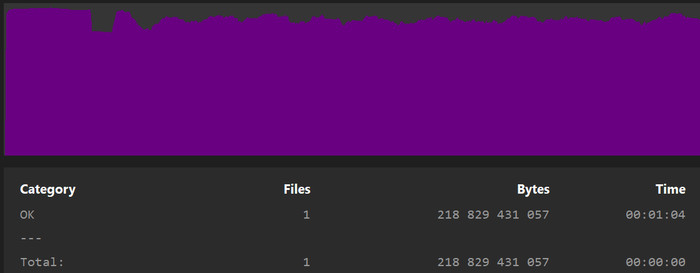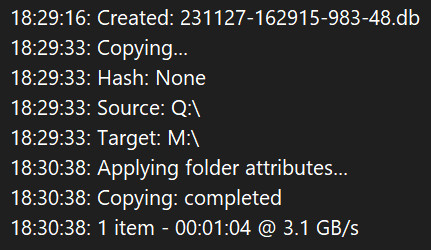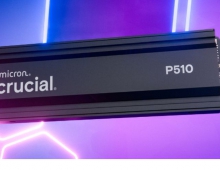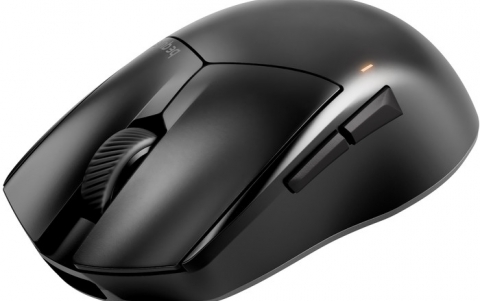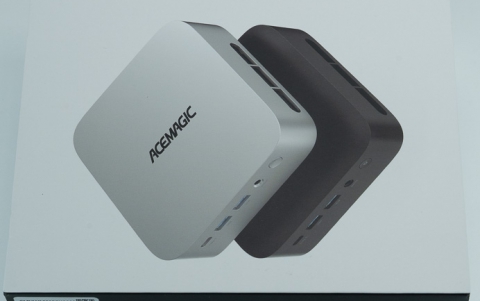Crucial T500 2TB NVME
2. Tests
In order to test the NVME SSD drive we used the following configuration:
- CPU: AMD Ryzen 9 7950X
- Thermal compound: Noctua NH-T1
- Case: SteamCom BC1 V2 Bench Table
- CPU Cooler: Noctua NH-U12A Chromax.Black + 2x120mm Stock Noctua fans
- Motherboard: Asus ProArt X670E-CREATOR WIFI with 1802 BIOS
- Memory: 2x16GB AddLink Spider X5 DDR5-6000MHz (EXPO Profile)
- PSU: be quiet! Dark Pro 13 1300Watt
- Main Storage: Samsung 980Pro 1TB
- VGA: MSI GeForce RTX 4090 SUPRIM X 24G
- Operating system: Windows 11 x64 + latest motherboard/AMD chipset drivers installed (DirectStorage enabled drive)
- Software: OCCT Enterprise Edition (2 sec interval monitor)
- Ambient room temperature ~ 23 Celsius (with AC climate control) - Environment Temperature measurements: Precision Gold N09AQ Envirometer Meter
Before starting presenting our tests, we have to check if the drive (with the heatsink) can perform perfectly under constant load. Stretching the drive under heavy load, we found that the overall drive temperature didn't exceed 64 Celsius, which is a good thing and with normal use, you can expect around 55-57 Celsius. That is a very good performance, meaning all the time you will get maximum performance without any fear of thermal throttle, which occurs after 88 Celsius (as stated on the SMART page).

The CryctalDiskMark results are very good in most cases
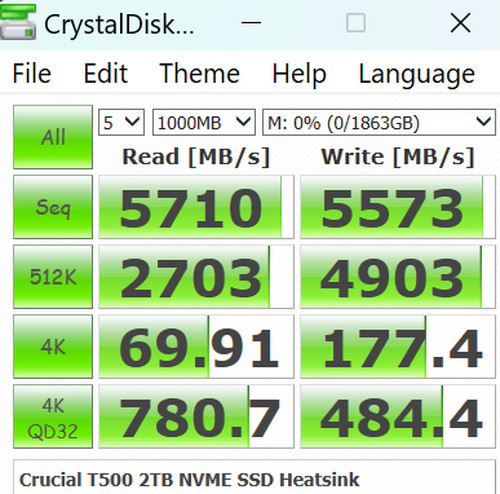
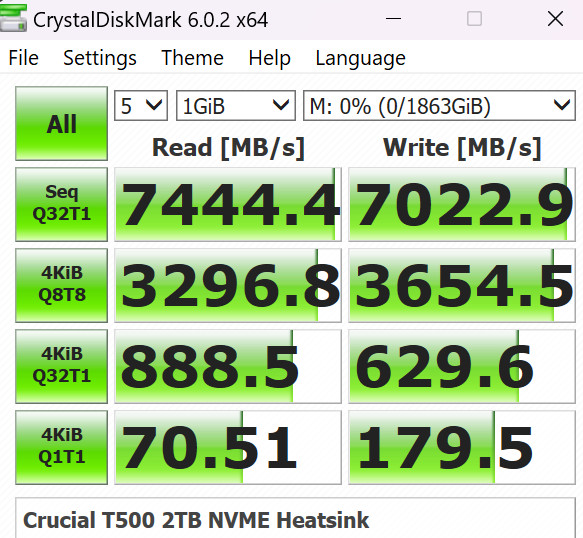
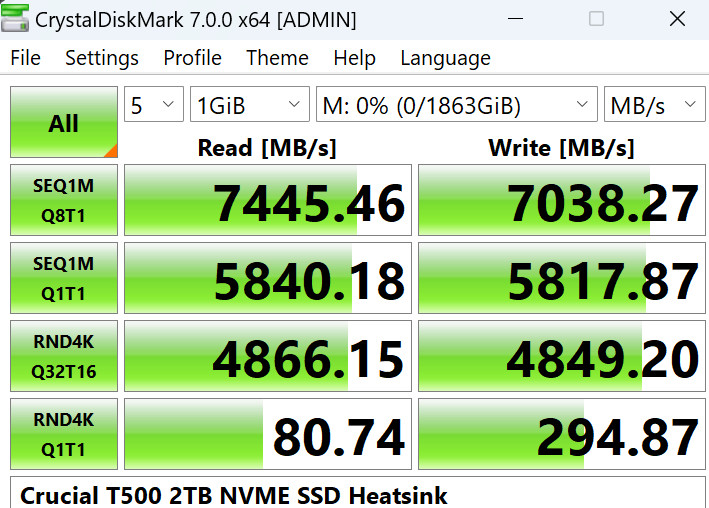
The latest version of CrystalDiskMark reports around 7.3G/sec reading and 6.96GB/sec writing with sequential operation.
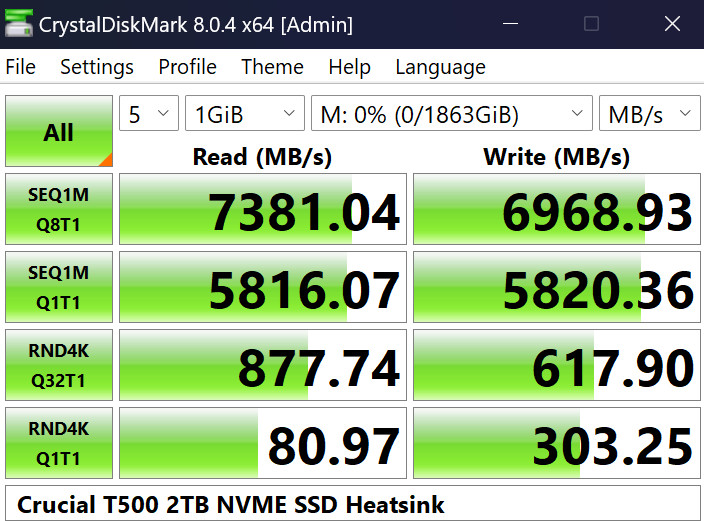
The AJA Test Suite also gives a quick read/write test result, which is lower than the above tests.

Passing to the AS SSD Benchmark, we got a high score with 11544 points.

The ATTO Disk Benchmark shows low performance, but it's rather outdated and doesn't work very well with Gen4/Gen5 PCIe drives.

, while with the latest ATTO Disk Benchmark 4.01.0f1 version, we got very high results, up to 6.48GB/sec reading and 6.75GB/sec writing performance.
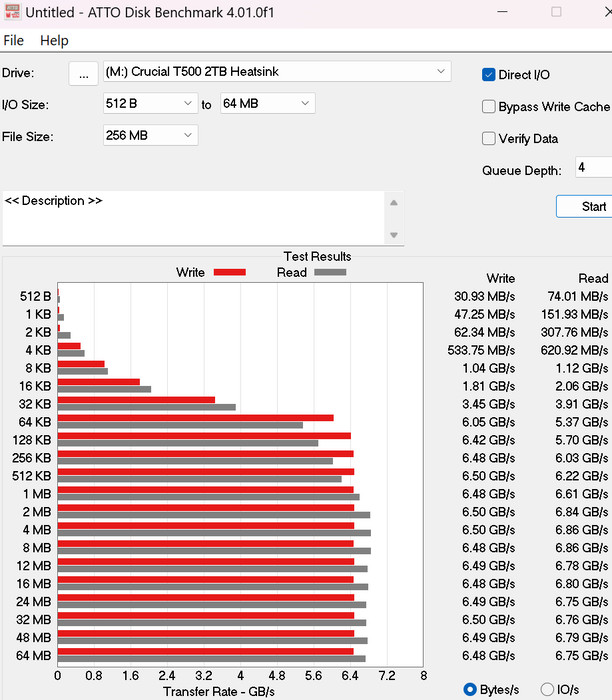
At the I/O Meter test, the drive showed improved performance, compared with previous Crucial NVME SSDs, with 132167.16 points that reach what the Samsung 980/990 series can deliver. The drive, at least with our system, had a good average I/O response time, while the maximum I/O response time was somewhat high at 23.4969 ms.
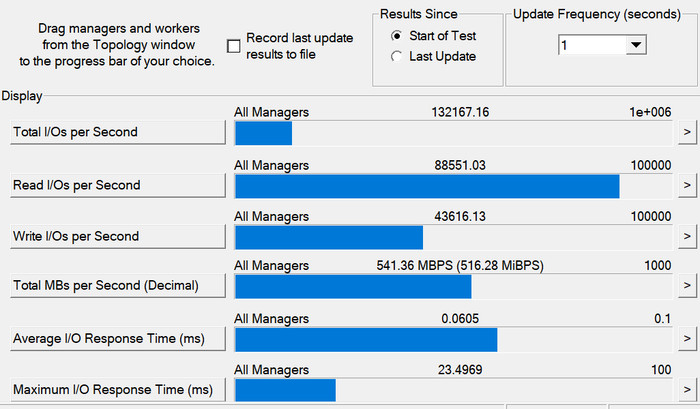
Then we tried to copy big files from the internal NVME SSD to the Crucial 2TB P5 Plus NVME SSD to test the writing endurance of the drive. The first test was to copy from a Samsung 980Pro 1TB NVME SSD a 47GB Single file to each Crucial NVME SSD with the Terracopy Software. The writing process was very good, and while we witnessed a small drop in writing speed, the overall writing speed was very good.
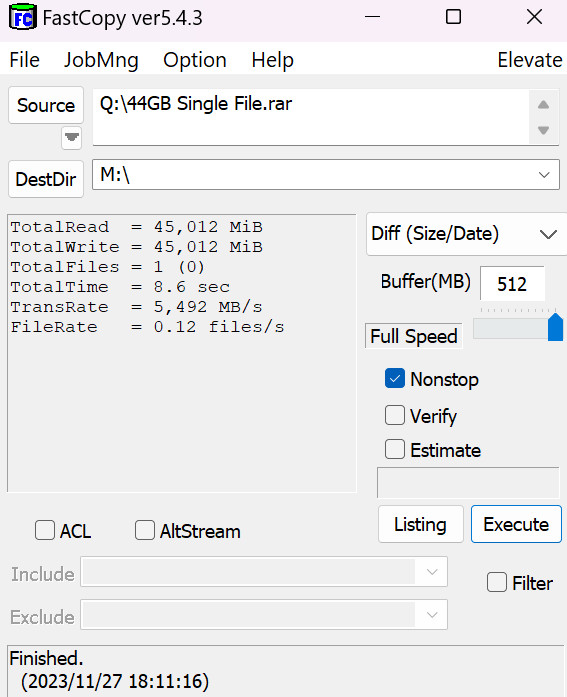
The Terracopy software at the same test, showed lower writing speeds
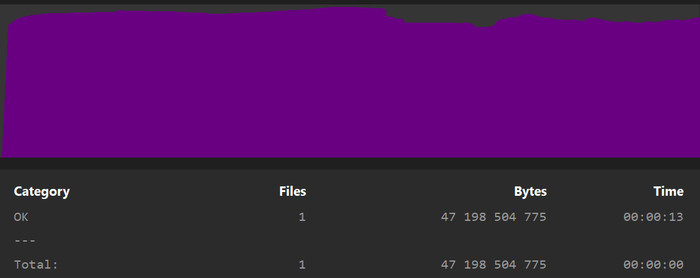

Performing the same test with a single 218GB file, gave us, more or less similar results. The single file was written without any issues and performance was around 3.0GB/sec with no drops in writing speed.
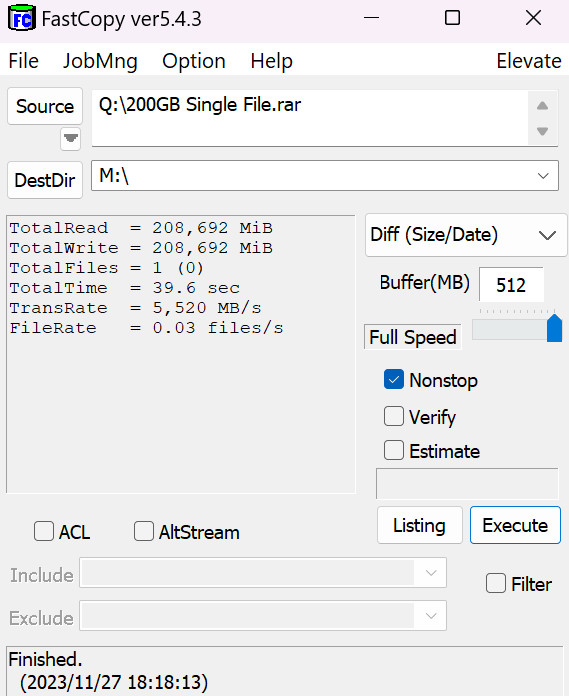
The Terracopy software at the same test, showed lower writing speeds
